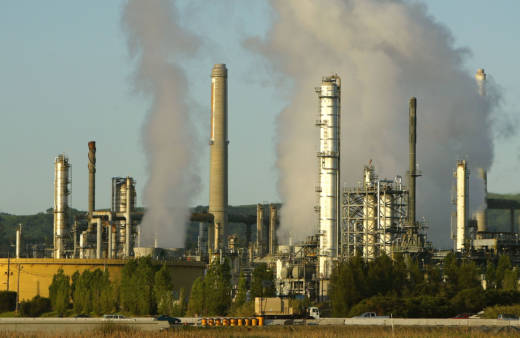Some oil executives, labor leaders and refinery workers urged directors to go with a less stringent proposal. They said the one the board approved Wednesday will hurt jobs, raise the cost of gasoline and hurt local airports that rely on the two refineries. They also said the large devices they may need to buy to satisfy the new rule use too much water and won't achieve the environmental gains predicted by the air agency.
In a statement after the vote, Chevron said it has already reduced its particulate matter releases, argued those reductions were greater than the ones required under the new rule and indicated it might sue the district.
"Unfortunately, rather than rely on actual data from our facility, Air Board Members adopted a rule based on erroneous data that fails to significantly improve local air quality at an extreme cost that could impact Bay Area consumers who rely on affordable energy in their daily lives," company spokesman Brian Hubinger said in an email.
"The rule threatens the supply of affordable, reliable and ever-cleaner energy at a time when our regional economy is still struggling to recover from the COVID-19 pandemic. In this case, the rulemaking effort is so flawed that we will investigate our legal options to ensure we can meet environmental goals, continue to provide fuels that meet strict environmental standards and save energy jobs in our community," Chevron's Hubinger said.
PBF Energy executives have told the air district the rule would force them to close down their refinery.
In a statement after Wednesday's hearing, PBF's Western Region President, Paul Davis, said the company expected the vote would come down the way it did and emphasized that the new rule only required emissions reductions, not necessarily the installation of a wet gas scrubber.
"PBF has previously planned projects that will be implemented over the coming months that will allow our Martinez refinery to achieve emissions reductions significantly closer to the desired level in the first quarter of 2022," Davis said.
"We will continue to work with the BAAQMD to arrive at our mutually desired goal of improving air quality and continuing to provide our vital products to one of the largest fuel markets in the world," he said.

